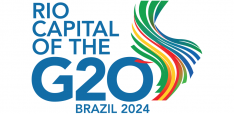When democracies employ repressive technology, what are the repercussions?

Jessica Brandt provides the sixth chapter to Global Policy's e-book on 'Digital Repression: Causes, Consequences and Policy Responses'. The e-book's chapters will be serialised on Global Policy over the course of 2023. Please find the other chapters here.
Anti-democratic leaders employ repressive technologies to tighten their grip on power at home, silence critics beyond their borders, and interfere in democratic states and institutions abroad, with damaging consequences for the rights of millions of people worldwide (Brandt 2022b). But authoritarian governments are not alone in harnessing digital technologies to accomplish their objectives. Democratic governments have used facial recognition systems, biometric identification and predictive policing for law enforcement purposes. They have also used them for national security purposes, to monitor potential threats. Some have used commercial spyware to achieve political aims -- targeting journalists, activists, opposition politicians, government officials and business executives.
When democracies employ repressive technologies, they undermine the civil and human rights of the individuals and communities they target. They weaken the rule of law. By silencing journalists and opposition leaders, they damage the vibrant and open information environment on which democracy depends. In using repressive technologies, democratic governments undermine the credibility of their institutions and of democratic systems more broadly, making it easier for authoritarian governments to advance critiques rooted in “whataboutism”, the practice of responding to an accusation by making a counteraccusation or raising a different issue (Merriam-Webster n.d.). They also make it harder for democratic governments to push back on authoritarian uses of repressive technologies – against their own citizens, and against diaspora populations living within democratic societies. In short, when democracies employ repressive technology, they become less democratic themselves and worsen their position in the emerging geopolitical competition between democracies and their authoritarian challengers.
The state of play
Much has been written about uses of digital technology by autocrats to surveil, repress, and manipulate domestic and foreign populations, often for the purposes of consolidating power or undermining challenges to their legitimacy (Polyakova and Meserole 2022; Brandt 2022b). Although they do so less frequently, given normative and institutional constraints, democracies have employed repressive technologies too – sometimes for law enforcement or national security purposes; others to preserve their grip on power (Feldstein 2023). In Greece, for example, intelligence services appear to have used spyware to monitor an opposition leader, investigative journalists, and a foreign national working for a global corporation (Markham and Emmanouilidou 2022; Stevis-gridneff 2023). In Indonesia, police may have used commercial spyware to persecute LGBTQ communities and religious minorities (Feldstein 2023; Yaron 2020). In Mexico, dozens of lawyers, human rights defenders, opposition politicians, anti-corruption advocates, and investigative journalists have been targeted by spyware sold to that country’s government (Ahmed and Perlroth 2017; Kirchgaessner 2022; Sheridan 2021). These are far from the only cases: at least 27 other democratic governments worldwide have acquired commercial spyware tools (Feldstein 2023). Meanwhile, law enforcement agencies in at least eleven European countries are using biometric recognition systems for investigations (Ragazzi et al., 2021).
Democratic societies have also been responsible for the spread of repressive technology to abusive regimes around the world. Oracle, a U.S.-based company, has partnered with purveyors of technology used to build China’s Orwellian surveillance state (Hvistendahl 2021). Equipment sold by Sandvine, a Canadian firm, has been used to censor the internet in Azerbaijan, Belarus, Egypt and Jordan (Gallagher 2020). France’s Nexa Technologies sold spyware to Egypt and Libya that was implicated in the torture of dissidents, among other human rights abuses (O'Neill 2021). Israel, by far the leading exporter of commercial spyware and digital forensic tools, approves export licenses for their sales (Priest et al., 2021; Feldstein and Kot 2023). So, while the conventional wisdom is that China is predominantly responsible for providing repressive technology to autocrats around the world, Beijing is far from the only player to do so (Feldstein 2021).
The repercussions
Weaker Democracy at Home
When democracies deploy repressive technologies, they undermine the civil and political rights of their targets, including the rights to freedom of speech, association, and assembly. They also undermine the democratic character of their societies. As a study commissioned by the European Parliament put it:
Political participation is affected by spyware in that spied-on citizens can be intimidated into abstaining from engaging in interactions having political content, from sincerely expressing their views, and from associating with others for political purposes. This affects the quality of a democratic public sphere, which ultimately relies on the citizens’ inputs and reactions (Sartor and Loreggia 2022).
This is especially important because spyware targets – often journalists, opposition politicians, and activists – tend to occupy important space in a free society because of the role they play in enabling the political participation of others (Sartor and Loreggia 2022). Moreover, by silencing critics – whether journalists or opposition leaders – through the use of these technologies, governments undermine the freedom and openness of the information environment that are essential for democracy to thrive. Democracy ultimately depends on the idea that the truth is knowable, and that citizens can pursue it, share it, and use it to govern themselves (Brandt 2022a). To the extent that it abridges rights to privacy, expression, association and due process, the use of repressive technologies by democratic governments can also undermine the rule of law (American Bar Association 2022). Finally, the use of these technologies can also undermine the electoral process directly if hacked information is weaponized against opposition candidates, or if the fear of being targeted leads individuals not to seek office or not to participate in political campaigns (Sartor and Loreggia 2022).
Diminished Credibility and Influence
By using repressive technology, democratic governments undermine the credibility of their institutions, which aspire to adhere to liberal principles. Especially given their considerable soft power and the moral authority that comes with their aspiration to liberal principles, democracies will model for governments everywhere how digital technology may be used. Their failure to live up to those principles could legitimate abusive uses of digital tools, with consequences for the rights and freedoms of millions of people around the world.
The use of repressive technology by democratic governments also makes it easier for autocrats to use “whataboutism” to dent democracy’s appeal to would be-activists at home and to diminish the soft power of democratic governments. For example, China regularly casts the United States and its European partners and allies as hypocritical in their support for political freedoms and coopts the language of liberalism to position its own governance model as a “whole process democracy” (Brandt 2022a). Russia too disseminates a steady stream of propaganda content painting the Western governments as hypocritical, drawing on places where they have fallen short of their ideas (Brandt 2022a). This leaves democratic societies less-well positioned to face the emerging geopolitical competition between democracies and their authoritarian challengers – both in the information domain and beyond it. That is because the global prestige and attraction of open systems is a critical asymmetric advantage of democracies in that contest (Brandt et al., 2020).
Jessica Brandt is policy director for the Artificial Intelligence and Emerging Technology Initiative at the Brookings Institution and a fellow in the Foreign Policy program’s Strobe Talbott Center for Security, Strategy, and Technology. Her research interests and recent publications focus on foreign interference, disinformation, digital authoritarianism and the implications of emerging technologies for liberal democracies. Her work has been widely published and quoted in the Washington Post, Associated Press, BBC, NPR, Bloomberg, Vox, Slate, and Wired, among others.
Photo by cottonbro studio
References
Ahmed, A., & Perlroth, N. 2017. Using texts as lures, government spyware targets Mexican journalists and their families. The New York Times. https://www.nytimes.com/2017/06/19/world/americas/mexico-spyware-anticrime.html
American Bar Association. 2022. Panel warns of spyware threats to human rights, rule of law. American Bar Association. https://www.americanbar.org/news/abanews/aba-news-archives/2022/08/panel-warns-of-spyware-threats/
Brandt, J. 2022a. Autocratic Approaches to Information Manipulation: A Comparative Case Study. AidData at William & Mary. https://www.aiddata.org/publications/autocratic-approaches-to-information-manipulation-a-comparative-case-study
Brandt, J. 2022b Digital Authoritarianism: Pathways, Trends, Solutions. Montreal Institute for Genocide and Human Rights Studies. https://www.concordia.ca/content/dam/artsci/research/migs/docs/DigitalAuth/MIGSReportDigitalAuthoritarianism_2022_Aug.pdf
Brandt, J., Cooper, Z., Hanlon, B., & Rosenberger, L. 2020. Linking Values and Strategy: How Democracies Can Offset Autocratic Advances. Alliance For Securing Democracy. https://securingdemocracy.gmfus.org/linking-values-and-strategy/
Feldstein, S. 2023. Global inventory of commercial spyware & digital forensics. Mendeley Data. https://data.mendeley.com/datasets/csvhpkt8tm/10
Feldstein, S. 2021. Governments Are Using Spyware on Citizens. Can They Be stopped? Carnegie Endowment for International Peace. https://carnegieendowment.org/2021/07/21/governments-are-using-spyware-on-citizens.-can-they-be-stopped-pub-85019
Feldstein, S., & Kot, B. 2023. Why Does the Global Spyware Industry Continue to Thrive? Trends, Explanations, and Responses. Carnegie Endowment for International Peace. https://carnegieendowment.org/files/Feldstein_Global_Spyware.pdf
Gallagher, R. 2020. Sandvine technology used to censor web in more than a dozen nations. Bloomberg. https://www.bloomberg.com/news/articles/2020-10-08/sandvine-s-tools-used-for-web-censoring-in-more-than-a-dozen-nations#xj4y7vzkg
Hvistendahl, M. 2021. How a Chinese surveillance broker became Oracle's "Partner of the year". The Intercept. https://theintercept.com/2021/04/22/oracle-digital-china-resellers-brokers-surveillance/
Kirchgaessner, S. 2022. Mexico: Reporters and activists hacked with NSO spyware despite assurances. The Guardian. https://www.theguardian.com/world/2022/oct/04/mexico-nso-spyware-journalists-human-rights-hacked-pegasus
Markham, L., & Emmanouilidou, L. 2022. How free is the press in the birthplace of democracy? The New York Times. https://www.nytimes.com/2022/11/26/business/greece-journalists-surveillance-predator.html
Merriam-Webster. n.d. What is “whataboutism”?, Merriam-Webster.com dictionary. https://www.merriam-webster.com/words-at-play/whataboutism-origin-meaning
O'Neill, P. H. 2021. French spyware bosses indicted for their role in the torture of dissidents. MIT Technology Review. https://www.technologyreview.com/2021/06/22/1026777/france-spyware-amesys-nexa-crimes-against-humanity-libya-egypt/
Polyakova, A., & Meserole, C. 2022. Exporting Digital authoritarianism. Brookings Institution. https://www.brookings.edu/research/exporting-digital-authoritarianism/
Priest, D., Timberg, C., & Mekhennet, S. 2021. Private Israeli spyware used to hack cellphones of journalists, activists worldwide. The Washington Post. https://www.washingtonpost.com/investigations/interactive/2021/nso-spyware-pegasus-cellphones/?itid=lk_inline_manual_3
Ragazzi, F., Kuskonmaz, M. E., Plajas, Z. I., Ven, V. R., & Wagner, B. 2021. Biometric & Behavioural Mass Surveillance in EU Member States. The Greens/EFA in the European Parliament. http://extranet.greens-efa.eu/public/media/file/1/7297
Sartor, G., & Loreggia, A. 2022. The impact of Pegasus on fundamental rights and democratic processes. Study requested by the PEGA Committee. European Parliament. https://www.europarl.europa.eu/RegData/etudes/STUD/2022/740514/IPOL_STU(2022)740514_EN.pdf
Sheridan, M. B. 2021. How Mexico's traditional political espionage went high-tech. The Washington Post. https://www.washingtonpost.com/world/2021/07/21/mexico-nso-pegasus/
Stevis-gridneff, M. 2023. Meta manager was hacked with spyware and wiretapped in Greece. The New York Times. https://www.nytimes.com/2023/03/20/world/europe/greece-spyware-hacking-meta.html
Yaron, O. 2020. Israel's Cellebrite sold phone-hacking tech to Indonesia. Haaretz. https://www.haaretz.com/israel-news/tech-news/2020-11-02/ty-article/.highlight/hacking-grindr-israels-cellebrite-sold-phone-spy-tech-to-indonesia/0000017f-db25-db22-a17f-ffb5bd550000

